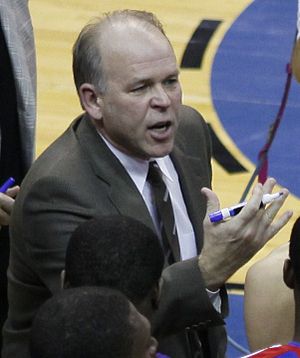Good Coaches Provide Solutions
Providing Solutions is one of the habits good coaches do. Good coaches focus on delivering their message through solutions because it steers a team towards better times and more beneficial situations. A coach that focuses on what the next step should be through solutions, is a coach that looks to constantly motivate and inspire the players they coach.
When evaluating coaches there is always a need to look and compare their performance to tried and proven techniques that ink out results. In this way coaching is a system, an application of good habits that in turn increase the likelihood of other more ambiguous thoughts such as luck. Good coaches work to always bring their desired message to the players in the most specific and meaningful way relevant to each player.

Solutions go a long way in constantly keeping individuals as well as a team on task. When you watch coaches new to the craft of coaching you can sometimes see them confusing their players by focusing on the problems at hand. These bad habits lead coaches to make statements like “stop doing that” or “work harder”. This can be heard in every stadium across the country. Coaches giving direction that leads to nowhere. It’s always good to remember that for player’s undefined statements can mean any number of different things and for many athletes a phrase like ‘work harder’ means they are not doing the right thing and also implies they are not putting in their best effort for the team. This can leave a sour taste in the mouth of junior, senior and elite players alike.
As a coach every word can be used as a tool to help the development and progression of the team’s performance. When as a coach you highlight the problem or issue instead of defining what is need, you only serve to compound the negative behaviour. In coaching, no aspect more routinely leaves players confused and disordered as poor direction provided by coaches.
To try and address this issue within your coaching when giving instruction to players once you see a negative behaviour use encouragement that leads to the desired behaviour. Instead of “work harder” direct your player to perform a certain task that demonstrates their effort on the court. Most times coaches make these broad statements in specific situations. The art in purposefuly communicating solutions is to take these broad statements and make them specific. If working harder means ensuring you are at the front of the basket before the guard reaches the three-point line, then express it in this way. Save yourself the anguish as a coach by improving your communication to include solutions not just reinforcing bad habits.
The problems associated with poor communication are not limited to junior ranks. Many senior coaches cause a souring of their relationships with players, and in extreme situations even teams, by not providing clear path for dealing with the immediate problems at hand. The end results of this situation can be seen many times throughout a season even in the National Basketball Association (NBA).
Communicating solutions instead of problems takes a significant amount of time to master and in times of high stress old habits will initially take over from time to time. Learn to admit your failures as a coach, but do not carry them around with you. Instead focus on everyday being a new opportunity to practice your craft and become that little bit better and ultimately a good coach.






Leave a Reply